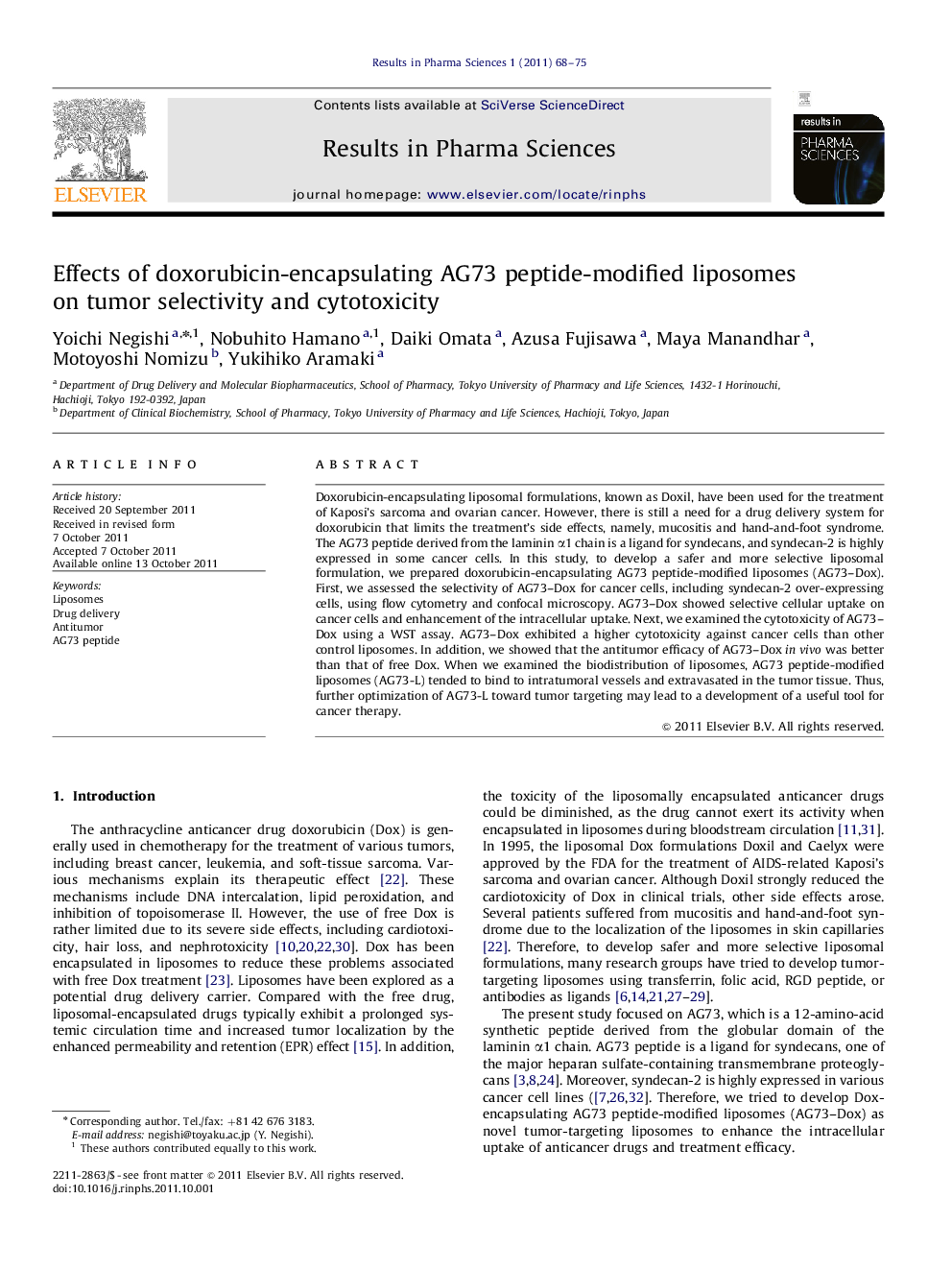| Article ID | Journal | Published Year | Pages | File Type |
|---|---|---|---|---|
| 1440022 | Results in Pharma Sciences | 2011 | 8 Pages |
Doxorubicin-encapsulating liposomal formulations, known as Doxil, have been used for the treatment of Kaposi’s sarcoma and ovarian cancer. However, there is still a need for a drug delivery system for doxorubicin that limits the treatment’s side effects, namely, mucositis and hand-and-foot syndrome. The AG73 peptide derived from the laminin α1 chain is a ligand for syndecans, and syndecan-2 is highly expressed in some cancer cells. In this study, to develop a safer and more selective liposomal formulation, we prepared doxorubicin-encapsulating AG73 peptide-modified liposomes (AG73–Dox). First, we assessed the selectivity of AG73–Dox for cancer cells, including syndecan-2 over-expressing cells, using flow cytometry and confocal microscopy. AG73–Dox showed selective cellular uptake on cancer cells and enhancement of the intracellular uptake. Next, we examined the cytotoxicity of AG73–Dox using a WST assay. AG73–Dox exhibited a higher cytotoxicity against cancer cells than other control liposomes. In addition, we showed that the antitumor efficacy of AG73–Dox in vivo was better than that of free Dox. When we examined the biodistribution of liposomes, AG73 peptide-modified liposomes (AG73-L) tended to bind to intratumoral vessels and extravasated in the tumor tissue. Thus, further optimization of AG73-L toward tumor targeting may lead to a development of a useful tool for cancer therapy.
Graphical abstractFigure optionsDownload full-size imageDownload high-quality image (205 K)Download as PowerPoint slide
